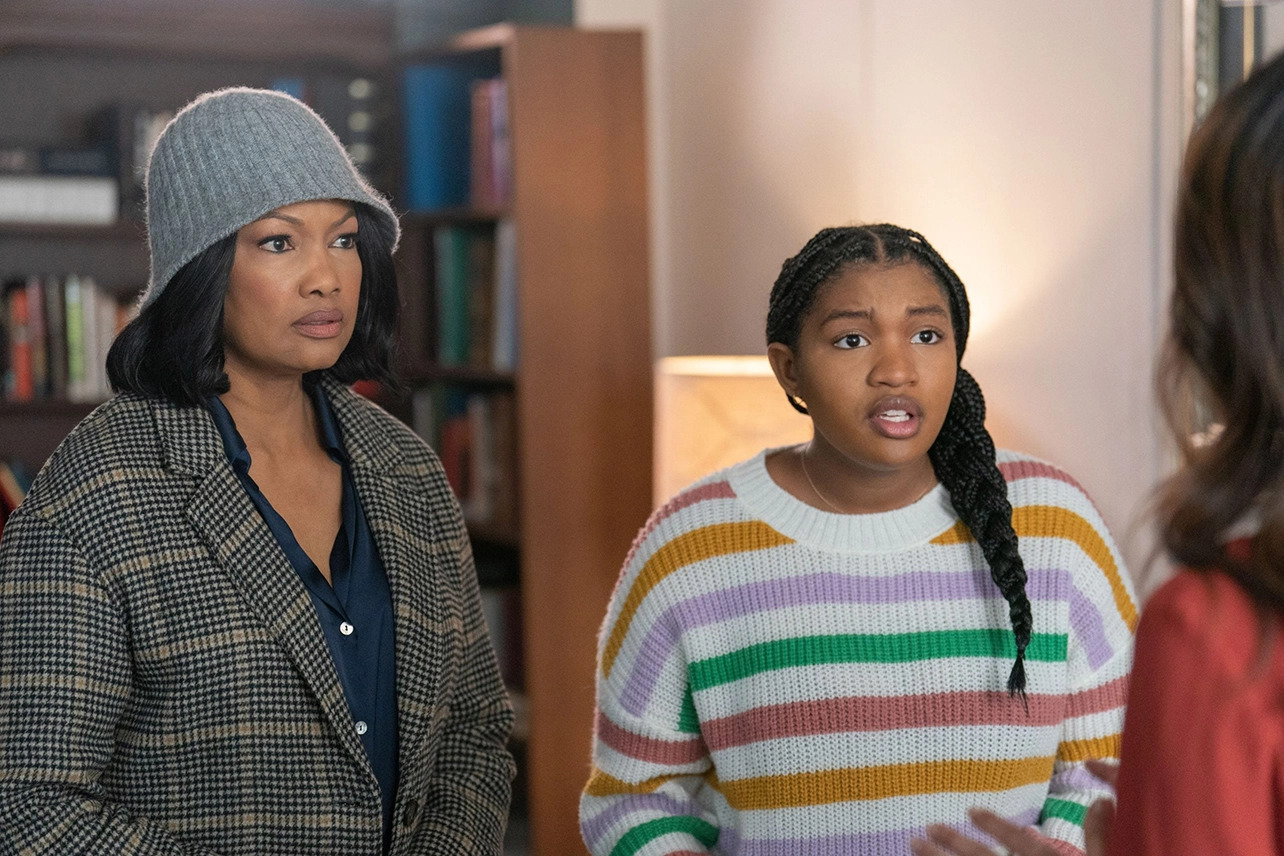Starring Garcelle Beauvais, Iyana Halley, Taylor Mosby, Linda Park, and Cleo Fraser, Lifetime’s ‘Black Girl Missing,’ is a crime drama movie that revolves around Cheryl and her daughter Lauren who get into a heated argument over the latter’s wish to drop out of college. When Lauren doesn’t pick up her calls and reply to her texts, Cheryl thinks that her daughter is just mad at her and ignoring her on purpose, only to find out that she has really gone missing. Now, she goes to the authorities and media for help, but instead, all she gets is their judgment — calling Lauren a runaway — while they are fixated on another missing person’s case of a white girl.
Taking the case into her own hands, Cheryl turns to her 15-year-old daughter Marley and asks for help from an internet community to find Lauren. Soon, she comes across the Black and Missing Foundation and discovers that missing person cases of people of color are neither given enough media coverage nor proper law enforcement resources. The Delmar Washington directorial involves some prevalent themes, such as missing person cases and prejudice against Black people, which makes you question whether ‘Black Girl Missing’ is rooted in a true story. Well, let’s explore the same, shall we?
Black Girl Missing: A Fictional Echo of Real Injustices
No, ‘Black Girl Missing’ is not based on a true story. Although a part of the network’s ‘Ripped from The Headlines’ lineup, as the title card at the beginning of the movie reads, it is actually “inspired by actual stories of missing women of color” and highlights the unfortunate truth about the justice system. But regarding the engaging and realistic storyline, it is the brainchild of Kale Futterman, who has previously written screenplays for ‘Samir,’ ‘Ginny & Georgia,’ and the short film ‘Lark.’ Thanks to her creative mind, brilliant writing prowess, and industry experience, she could develop a unique screenplay for the Lifetime film.

Although the movie is not based on any specific event that occurred in real life, it is the amalgamation of different stories that happen way too often than we realize. However, some aspects of the story are true, such as the Black and Missing Foundation. Formed in 2008, it is an actual foundation established by Derrica Wilson and Natalie Wilson that helps people of color find their missing loved ones. Moreover, the bias toward Black people portrayed throughout the film, when it comes to media attention, reporting, and careless handling from the side of the police, is also an authentic and prevalent subject.
In a telephonic interview with Black Girl Nerds, Garcelle Beauvais, who portrays Cheryl in ‘Black Girl Missing,’ was asked to elaborate on the evident discrimination that black missing person cases face. She said, “When we go missing, immediately she’s a runaway. It’s not about what could happen, how we can help, or where we can go. In the movie, it’s the cops not calling back, not doing enough, and saying that she’s 18 and an adult.”
Garcelle added, “Well, if she were white and 18, it would be a different story. I think we wanted to put those things in the movie and not shy away from it because it’s really happening. So, the next time an officer gets a missing person of color on his desk, he doesn’t just put it away as a runaway.” The movie also touches upon the bullying and depression that Black girls tend to go through.
In the same interview, Garcelle was asked why including these topics in the film was necessary. She answered, “Growing up, no one talked about stuff like that. We didn’t know what mental health was. We would just say, “Oh, you’re crazy,” and “Go sit down.” It was important to show because this is what we’re dealing with now.” So, keeping all these factors in mind, it would be fair to say that although ‘Black Girl Missing’ is inspired by different real-life stories of Black missing women, it is not based on one particular true story.
Read More: Where Was Lifetime’s Black Girl Missing Filmed? Who is in the Cast?


You must be logged in to post a comment.